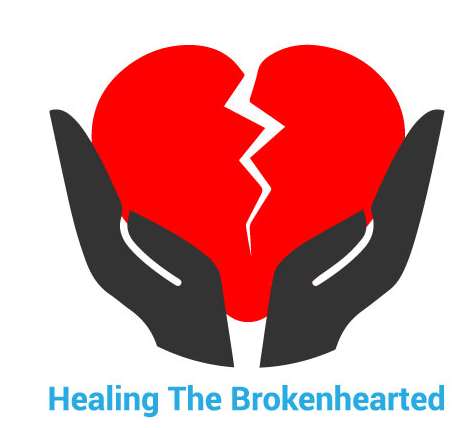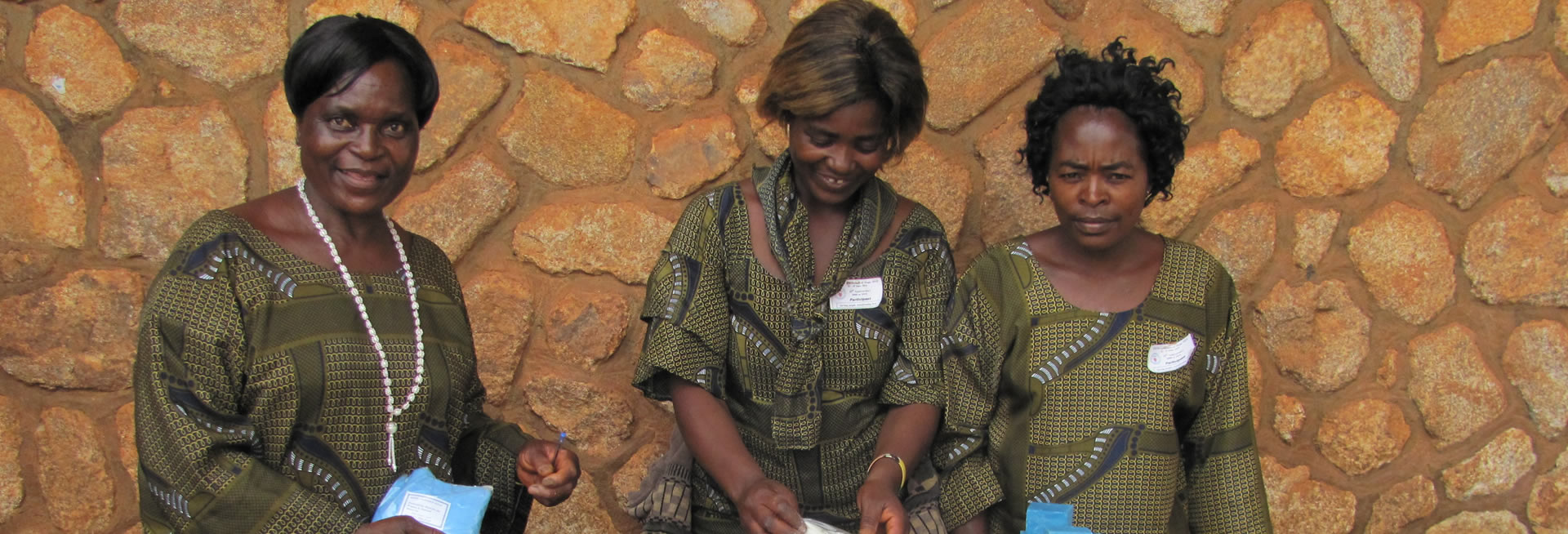Following the Ignuk village community workshop on 30th October, 2017 with Hope for the Widows and Orphans Ministries (HWOM) – Cameroon on ‘Finding lasting Solutions to Widowhood Problems in Mbumland’, the following resolutions were arrived at by all present.
The participants included: Men including the Traditional Ruler and Pastors – 44, married women –29, widows – 35, youths – 36 and single mothers – 20 giving a total number of 164 people. The participants were grouped accordingly during the workshop session and reported their work in plenary, debated upon and derived resolutions.
A committee of three members was formed to work on the resolutions and bring back at a later date for adoption and signature.
SECTION 1: MOURNING PRACTICES
ARTICLE 1: Duration of mourning for the whole village: The Duration of mourning shall be one day (the day of burial) for the whole village be it the death of a man or a woman. The immediate family shall mourn for a period as they shall feel to do so.
ARTICLE 2: Duration of morning for the widow:
a). There shall be no prescribed duration of mourning for the widow. She shall be free to mourn for a period of her choice as she feels and not for a prescribed period.
b). The community shall encourage the widow to resume her normal activities such as farming and marketing as soon as possible. They are encouraged to assist her in working on her own farms instead of prescribing a period she must stay at home without carrying out any activity.
ARTICLE 3: Provision of the first pot of corn or groundnuts: A widow shall not be compelled to provide the first pot of corn or groundnuts to be cooked for the mourners on the first day. Such food shall be provided by the family members.
ARTICLE 4: Sitting and sleeping on the floor during the period of mourning:
(a). Widows and female mourners shall not sit/lie on the floor in the ‘mourning house’ but on chairs, stools or benches.
(b). They shall not sleep on the floor in the mourning house but shall go to their various homes and sleep on their beds and only gather in the mourning house the next morning. The quarter female leader shall take charge of the widow.
ARTICLE 5: Provision of a goat (Mbfu Mkuu) to be prepared for the first mourners: Mbfu Mkuu is abolished and meat shall be provided by the family for the feeding of the first mourners who come to the compound.
ARTICLE 6: Accusation and insults on widows: Accusation of widows for being responsible for the death of their husbands through witchcraft and insults on such widows is prohibited.
ARTICLE 7: When the corpse is still in the mortuary: When a person dies and the corpse is still out of the village or put in a mortuary, the people of the village shall be free to carry out their activities until the mourning begins on the day of burial.
ARTICLE 8: Mourning attire of the widow: A widow shall be free to wear her normal dresses and change them as need be during the mourning period. She shall not be compelled to wear a particular dress neither shall she be compelled to fix a date for the removal of such a dress.
ARTICLE 9: Memorial/thanksgiving ceremony: Thanksgiving by a widow is not compulsory and must not be prescribed to be one year after her husband’s death.
ARTICLE 10: Reimbursement of transport fares: In-laws asking their daughter’s husband to reimburse transport fares for condolence visits is prohibited. Family elders should stop making excessive demands on the grooms when a family member dies.
ARTICLE 11: The practice of providing blankets, salt, buckets, cooking pots, and Mtzi (Country salt):
a). The demand of blankets, salt, plastic buckets, cooking pots, and Mtzi (Country salt) when an elderly person dies is prohibited. Good care should be taken of a person when he or she is alive to enjoy and bless the giver and not wait until such people die before mourners are taxed to bring them. The demand of such things as listed causes hardships, disagreement and division in the families and should be stopped.
b). ‘Mtzi’ is unhealthy and the manner in which people lick it during burials is even unhygienic; thus, it is prohibited.
ARTICLE 12: Harmful banner of mourning: Mourners should not mourn in a way that they can be harmed or harm themselves.
ARTICLE 13: Excessive drinking during funerals:
a). The village community should stop excessive drinking during funerals.
b). They should stop excessive demands on the grooms and family to provide drinks and food. Allow them to offer help in a way that is convenient for them.
SECTION II: INHERITANCE
ARTICLE 14: Inheritance rights:
a). The widow and her children shall inherit her husband’s property.
b). Where there is a will left by the husband, it shall be made known and respected accurately.
c). Boys and girls should have equal rights to inheritance because they both contributed to; and cared for their parents’ property. There are cases where the girls have cared for the family even from their own marital homes more than the boys. Thus in writing wills, parents are encouraged to distribute property to their children according to their capability/faithfulness and NOT according to gender.
d). Where property is seized from a widow, the case should be taken to the Fon or competent legal authorities.
SECTION III: REMARRIAGE
ARTICLE 15: Widow Inheritance: The inheritance of widows by male family members is prohibited and a widow shall not be forced to cohabit with a family member against her will.
ARTICLE 16: Remarriage for a young widow without children: A young widow without children shall be taken to her parents after the mourning period and be free to remarry whenever she feels like. The two families should discuss and agree on how things should be done. For example, the dowry-palaver!
ARTICLE 17: Remarriage for a young widow with children:
a). A widow with children shall be encouraged to stay and take care of her children.
b). If the widow desires to remarry, the family of the late husband and the family of the new suitor shall agree as to the fate of the children and the property left by the late husband and any rights accruing to the wife because of the husband’s death e.g. pension. The widow should be made to understand that when she remarries, she shall lose the right to any property she had inherited from the late husband. It shall remain under the care of the children she had with her late husband.
SECTION III: BRIDE PRICE
ARTICLE 18: Payment of bride price:
(a): Bride price shall be a token and not an exorbitant amount which tends to discourage young men from marrying properly.
(b): The token amount of bride price was left as food for thought to be decided at a later date during evaluation.
ARTICLE 19: The Suitor shall not be compelled to refund the girl’s school fees.
SECTION IV: ORPHANS:
ARTICLE 20: The fate of the orphaned children:
a). The family of the late husband are encouraged to take good care of the orphans left behind like their own children and not discriminate against them.
b). Compelling the orphaned girls into early marriage is prohibited. Meanwhile the boys should be assisted to marry properly.
SECTION VI: FONS, FAIs, YAAs AND MANFKUs
ARTICLE 21: Marriage for YAAs and MANFKUs: They should be allowed to marry with dignity. The husbands should be made to understand that at death, the corpse of their wife would be brought back to the palace for burial.
ARTICLE 22: The fate of a missing Fon: Are the wives of a “missing Fon” considered as widows? What happens if the new Fon or Fai does not like to inherit all the wives of the former Fon; and if the wives of the former Fon do not like the new Fon, was left as food for thought.
ARTICLE 23: Right to private property by the Fon: There is a clear distinction between the Fon’s private property and that of the Fondom and he has right to his private property.
ARTICLE 24: The Fon’s right to earn an income: The Fon has the right to look for employment and work so as to live well. The idea of creating a ‘Village Development Fund’ to take care of village projects including assistance to the Fon e.g. a Fon’s Day was left as food for thought.
GENERAL PROVISIONS
ARTICLE 25: Wills: Men are encouraged to write wills as they start acquiring property from the age of 21 as prescribed by Cameroon law.
ARTICLE 26: Marriage and Birth Certificates: All married couples are encouraged to legalize their marriages by establishing marriage certificates. They are also to establish birth certificates for their children in a timely manner.
The village council could arrange for the civil status officers of the subdivision to come to the village and carryout collective marriage ceremonies.
ARTICLE 27: All Pastors are encouraged to carry out pre-marital counselling to prepare engaged couples for a proper and successful marriage.
ARTICLE 28: Country Sundays: Two ‘country Sundays’ shall be observed within the Ignuk Fondom and these are Ndfung and Sing.
Done at Ignuk: 30th October 2017
The President, Execution and The President, Traditional Council
Follow Up Committee
Name: Name:
Signature: Signature:
Executive President HWOM Fon of Ignuk
Name: Name:
Signature: Signature:
Appendix 1: Resolutions Committee
S/N | Name | Telephone Number |
1 | The Traditional Council Secretary | |
2 | Member | |
3 | Member |
APPENDIX 2: MEMBERS OF THE EXECUTION AND FOLLOW UP COMMITTEE
The following were designated as members of the follow up committee according to their quarters in Ignuk village.
S/N | QUARTER | COMMITTEE MEMBER | TELEPHONE |
01 |
| President |
|
02 | Vice President | ||
03 | Secretary | ||
04 | Member | ||
05 | Member | ||
06 | Member | ||
07 | Member |
APPENDIX 3: FUNCTIONS OF THE EXECUTION AND FOLLOW UP COMMITTEE
The committee shall carry out the following functions:
- Sensitize the entire village about the resolutions on finding lasting solutions to widowhood problems in Ignuk village through the following means and more:
- Talk in Churches
- Talk in various meetings such as ‘Njangi’ houses, youth groups, development meetings, quarter meetings etc.
- Talk over the local radio
- Talk at all village occasions where possible.
- Practically ensure that the resolutions are obeyed by all Ignuk people.
- Keep record of their operations (both successes and challenges) to be discussed in a meeting sometimes in June 2018 together with HWOM for evaluation and planning for subsequent actions until the desired goal is attained.
- Make census of Ignuk village (couples and their children, widows and their children, single women and their children).
Post a comment Cancel reply
Related Posts
HoWiCo, Transforming Lives, Changing Communities and Teaching others to do same!
Following the Ignuk village community workshop on 30th October, 2017 with Hope for the Widows…
Resolutions on widowhood practices in Ignuk village community Cameroon
Following the Ignuk village community workshop on 30th October, 2017 with Hope for the Widows…




